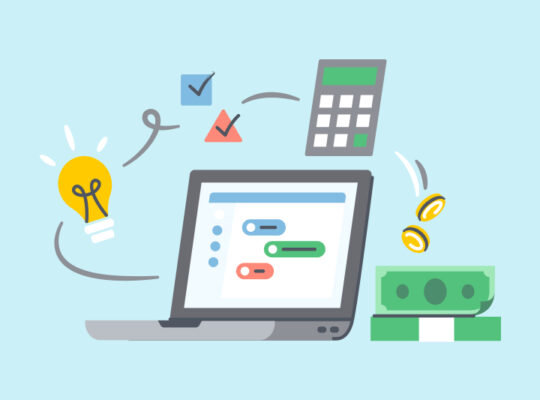Is Interest Deductible?
TurboTax Canada
November 20, 2023 | 3 Min Read
Updated for Tax Year 2025

Some of the interest you pay on your mortgage, loans, or credit cards may be deductible on your tax return. Whether interest is deductible depends on how you use the money you borrow. Interest you pay on money used to generate income may be deductible if it meets the Canada Revenue Agency criteria. You have to keep track of how you spend the money so you can deduct the corresponding interest amounts.
Borrowing to Earn Income
The Interest you pay on money you borrow to earn investment income that pays out interests and dividends are deductible in Line 22100 of your Income Tax and Benefit Return. If you are paying interest on money borrowed to generate business income, then you can deduct them as business expenses in Line 8760 of your T2125 (Statement of Business and Professional Activities).
Interests paid on a mortgage cannot be deducted unless this mortgage is paid on a property that is used for business. Then you will be able to deduct the business use portion only.
Business Income
Investment Income
If you use borrowed money to buy investments, the interest may be deductible. As long as your investments generate income such as dividends or interest, or if you have a reasonable expectation that they will generate income, you can deduct the interest on your loan from your total income. Capital gains are not income for the purposes of this deduction. If you borrow to invest only in shares that don’t pay dividends and rely on capital gains to make money, the interest is not deductible.
Income From Properties
Interest on a mortgage you use to buy a property is deductible if you generate rental income from the property. Even if you live in the property, as long as you rent out part of it, part of the interest is deductible. When you sell the property and use the proceeds to pay off the loan, you no longer have any interest to deduct, but if you sell at a loss and you can’t pay off all of the loan, the remaining interest remains deductible even though you no longer own the property.
Keeping Records
The most important part of deducting interest is keeping records to prove that you used the borrowed money to produce income. You have to keep receipts or cancelled cheques to show that you used the money from a loan in your business or to buy bonds or shares. For credit card debt, it’s a good idea to keep one card just for business expenses. The statements can be used to deduct all the interest that accumulates on that card.
Maximizing Deductible Interest
You can reduce your taxes by making sure that you use cash for personal purposes and loans for producing income. For example, if you have cash available and want to invest some money, it’s a good idea to use the cash to pay down credit cards or personal loans and then borrow an equivalent amount for your investments. You reduce the amount of interest you pay on personal credit cards and loans and replace it with the interest you pay on investment loans. You can then deduct the interest on the money borrowed for your investments and reduce your overall taxes.
References & Resources
Related articles

© 1997-2024 Intuit, Inc. All rights reserved. Intuit, QuickBooks, QB, TurboTax, Profile, and Mint are registered trademarks of Intuit Inc. Terms and conditions, features, support, pricing, and service options subject to change without notice.
Copyright © Intuit Canada ULC, 2024. All rights reserved.
The views expressed on this site are intended to provide generalized financial information designed to educate a broad segment of the public; it does not give personalized tax, investment, legal, or other business and professional advice. Before taking any action, you should always seek the assistance of a professional who knows your particular situation for advice on taxes, your investments, the law, or any other business and professional matters that affect you and/or your business.









